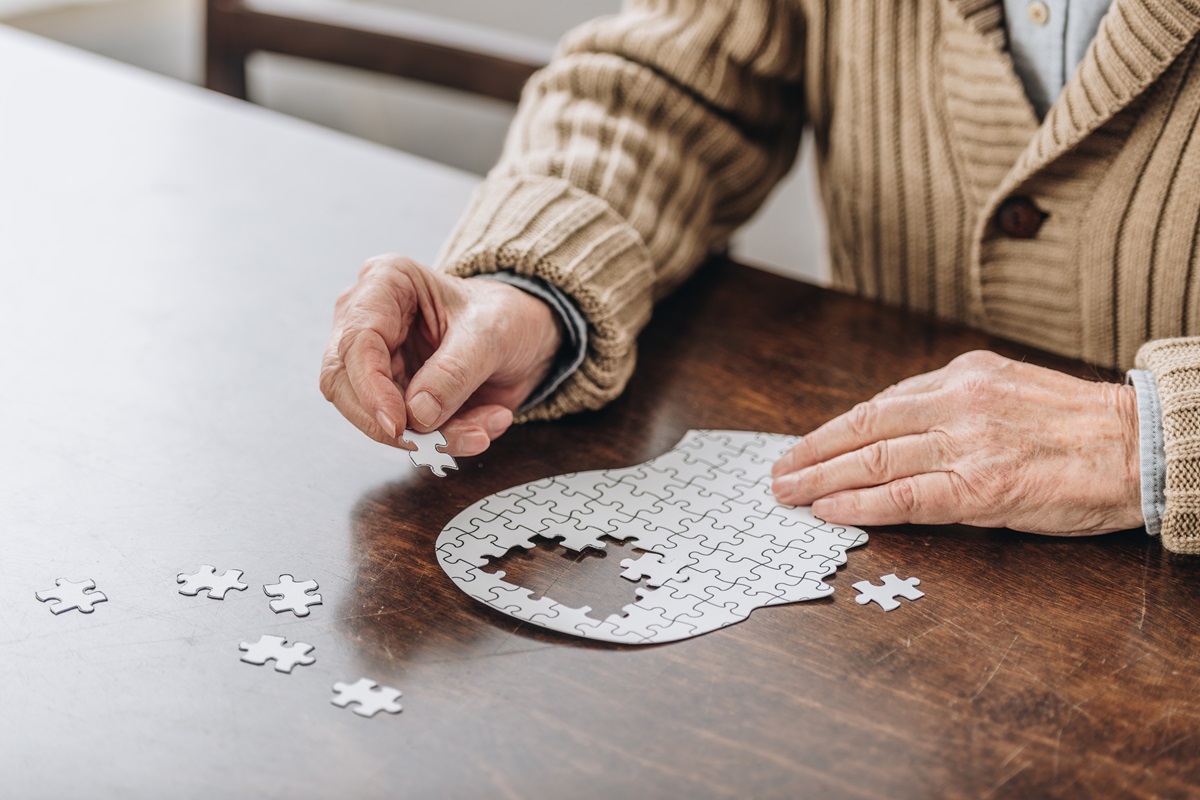Understanding Dementia: Types, Warning Signs, Diagnosis, and Support

Dementia is a topic that touches the lives of many, whether you’re a family member, caregiver, or healthcare professional. The complexity and nuances of dementia make it crucial to gain a deeper understanding.
In this comprehensive article, we will explore dementia from various angles, including the key differences between Alzheimer’s and dementia, the warning signs to watch for, the process of diagnosis, and the profound impact it has on families and carers. We’ll also provide practical advice on how to support someone living with dementia.
What’s the Difference Between Alzheimer’s and Dementia?
Dementia
Dementia is an umbrella term that encompasses a wide range of cognitive impairments and symptoms that interfere with a person’s daily functioning and quality of life. It is not a specific disease itself but rather a general term used to describe a cluster of symptoms related to cognitive decline. Dementia is like a broad category that includes various conditions that share similar characteristics but have different underlying causes and progressions.
Alzheimer’s Disease
Alzheimer’s disease, on the other hand, is a specific and the most common type of dementia. It accounts for a significant proportion of dementia cases, making it a well-known and extensively studied form of cognitive decline. Alzheimer’s disease has distinct characteristics and is characterised by the accumulation of abnormal protein deposits in the brain, including beta-amyloid plaques and tau tangles. These abnormal protein aggregates lead to the progressive loss of brain cells and the associated cognitive decline.
Other Types of Dementia
The key difference is that while Alzheimer’s is a specific condition with a defined pathological process, dementia is a broader term used to describe a constellation of symptoms that can be caused by various underlying factors. Other types of dementia include vascular dementia, Lewy body dementia, frontotemporal dementia, and more, each with its unique set of symptoms and causes.
Understanding this distinction is essential because it helps in accurate diagnosis and appropriate treatment. Different types of dementia may require different approaches to care and support, and early diagnosis can be critical for accessing the right interventions. It’s also important to recognise that some individuals may have a combination of different types of dementia, further emphasisng the complexity of the condition.
Early Signs of Dementia
There are more subtle behavioral changes that could be early indicators of dementia. Understanding these early signs can facilitate early diagnosis, which is often the key to managing the condition effectively.
Early signs of dementia include memory problems, difficulty with planning and organisation, confusion about time and place, language difficulties, misplacing items, impaired judgment, struggles with familiar tasks, social withdrawal, mood and personality changes, and decreased spatial awareness. These subtle but noticeable changes in cognitive and behavioral functions should prompt individuals and their families to seek a professional evaluation for early diagnosis and appropriate management.

10 Warning Signs of Dementia
The warning signs of dementia can vary among individuals, but they generally include the following:
- Memory Loss: Forgetfulness that disrupts daily life, such as forgetting recently learned information or important dates and repeatedly asking for the same information. Interestingly, the individual may remember long term memories such as events from their childhood or working careers, but struggle to retain current short term memories, if any at all.
- Difficulty Planning and Problem-Solving: Struggling to plan and complete familiar tasks, solve problems, or follow a recipe, even if they were once routine.
- Confusion with Time or Place: Becoming disoriented about dates, seasons, and the passage of time. Not knowing where they are or how they got there.
- Difficulty Understanding Visual Information: Trouble reading, judging distances, and determining colour or contrast, which may result in difficulty with driving or coordination.
- Problems with Speaking or Writing: Struggling to find the right words, repeating themselves, or having difficulty following or joining in on a conversation.
- Misplacing Items: Putting things in unusual places and being unable to retrace their steps to find them. Accusing others of stealing or hiding their belongings.
- Decreased or Poor Judgment: Displaying poor decision-making skills, such as giving large amounts of money to telemarketers, neglecting personal hygiene, or making inappropriate social comments.
- Withdrawal from Work or Social Activities: Losing interest in hobbies, social activities, work, or personal relationships. Becoming passive, disinterested, or hesitant to engage.
- Mood and Personality Changes: Exhibiting mood swings, irritability, anxiety, depression, or increased suspicion. These changes may occur suddenly or over time.
- Difficulty Completing Familiar Tasks: Struggling with routine tasks like managing finances, using household appliances, or following familiar game rules.

It’s important to note that experiencing one or more of these warning signs doesn’t necessarily mean someone has dementia. These signs should prompt a discussion with a healthcare professional for a proper evaluation and diagnosis. Early detection can lead to better management and improved quality of life for individuals living with dementia.
How Is Dementia Diagnosed?
In Australia, dementia is typically diagnosed professionally through a multi-step process that involves the following key components:
- Initial Assessment: The process often begins with a visit to a general practitioner (GP) or family doctor. The GP will conduct a thorough medical assessment, including a review of the patient’s medical history, cognitive function, and physical health. They may also inquire about changes in memory, behavior, and daily functioning.
- Cognitive Assessment: If dementia is suspected, the next step is often a comprehensive cognitive assessment conducted by a healthcare professional, such as a neurologist, geriatrician, or neuropsychologist. This assessment involves a series of standardised tests to evaluate memory, attention, problem-solving skills, language, and other cognitive functions. Commonly used tests in Australia include the Mini-Mental State Examination (MMSE) and the Montreal Cognitive Assessment (MoCA).
- Brain Imaging: Brain imaging, such as MRI (Magnetic Resonance Imaging) or CT (Computed Tomography) scans, may be ordered to rule out other potential causes of cognitive decline, like tumors or strokes. These imaging studies can also help identify structural changes in the brain associated with dementia.
- Blood Tests: Blood tests may be conducted to check for underlying medical conditions that could be contributing to cognitive impairment, such as thyroid disorders, vitamin deficiencies, or infections.
- Neuropsychological Assessment: In some cases, a more in-depth neuropsychological assessment may be performed to provide a detailed profile of cognitive strengths and weaknesses. This can help differentiate between different types of dementia.
- Collaboration with Specialists: In complex cases or when the diagnosis is unclear, the healthcare provider may consult with specialists, such as neurologists, psychiatrists, or geriatricians, to arrive at a conclusive diagnosis.
- Monitoring and Follow-Up: Dementia is a progressive condition, and diagnosis is an ongoing process. Patients are typically monitored over time to track changes in cognitive function and behavior. Regular follow-up appointments with healthcare professionals are essential to adjust treatment and support plans as needed.
- Care and Support Planning: Following a diagnosis, healthcare providers often work closely with patients and their families to develop a care and support plan tailored to the individual’s needs. This plan may include medications, lifestyle modifications, and access to support services.
If dementia is suspected, individuals and their families are encouraged to seek medical advice promptly to initiate the diagnostic process and access appropriate care and support services.
The Impact of Dementia on Family and Carers
Dementia doesn’t affect just the individual diagnosed; it has a profound impact on their families and carers.
For families, seeing a loved one change before their eyes is a confronting and sad experience. As the disease progresses, the changes in their loved one’s personality, memory, and abilities can be both confronting and saddening. Initially, it may start with mild forgetfulness or occasional confusion, but over time, these symptoms intensify. The emotional toll on family members can be overwhelming, as they watch the person they care deeply for struggle with a condition that erodes their sense of self and independence.
Emotionally, the impact on families can be profound. They may experience a mix of grief, frustration, guilt, and sadness as they witness their loved one’s decline. The person they once knew and shared memories with seems to slip away, and this loss can be incredibly painful. It can also strain relationships within the family, as different members may have varying opinions on care decisions and coping mechanisms.

As dementia advances, the need for support becomes more pronounced. Support can encompass a wide range of aspects, from daily assistance with tasks like bathing, dressing, and eating, to managing challenging behaviors and ensuring safety. Providing this level of care often requires significant dedication and time commitment from family members, turning caregiving into a full-time role for many. In most cases, professional services are utilised, such as in-home support workers or transitioning into a dementia specific residential aged care home.
How Can You Help Someone with Dementia?
Supporting someone with dementia requires patience, empathy, and understanding. Here are practical tips to help maintain a positive relationship and ensure the well-being of your loved one:
Learn About Dementia
Educate yourself about dementia to better understand the condition and its progression. Knowledge empowers you to provide appropriate care and support.
Maintain Routine
Stick to a consistent daily routine as much as possible. Predictability can help reduce anxiety and confusion for the person with dementia.
Effective Communication
Use clear and simple language when speaking. Maintain eye contact, speak slowly, and give the person time to respond. Avoid arguing or correcting their memories; instead, provide reassurance.
Create a Safe Environment
Remove hazards in the home that could lead to accidents. Ensure that the living space is organised and free of clutter to reduce confusion.
Engage in Meaningful Activities
Encourage participation in activities the person enjoys, such as hobbies, music, or gentle exercise. You can also connect them with family pets, or take them out to enjoy their favourite foods. Activities can provide a sense of purpose and enjoyment, and may help them feel more connected to their past and sense of self.

Assist with Daily Tasks
Offer assistance with daily tasks like bathing, dressing, and eating, while respecting their dignity and independence as much as possible. Trained support workers can be utilised for these personal care tasks to maintain their dignity and privacy.
Promote Physical Health
Encourage a balanced diet, regular exercise, and adequate sleep to maintain physical well-being. Monitor for any health issues and seek medical care when necessary.
Address Behavioural Changes
Be prepared for mood swings or challenging behaviors. Identify triggers and use distraction or redirection techniques to manage these situations calmly.
Respite Care
Don’t hesitate to seek respite care services to give yourself a break from caregiving responsibilities. It’s essential to take care of your own physical and emotional well-being.
Join a Support Group
Connect with local or online support groups for dementia caregivers. Sharing experiences and advice with others facing similar challenges can be immensely beneficial.
Legal and Financial Planning
Consider preparing legal and financial matters, such as power of attorney and advance care directives, to ensure you can make decisions on behalf of your loved one when needed.
Consider Specialised Care
As the condition progresses, you may need to explore specialised care options, such as St Jude’s dementia specific aged care facilities and services. Our facilities are designed to provide tailored care and support for individuals with dementia, offering a safe and comfortable environment where their unique needs can be met.

Your Loved One Is In Safe Hands at St Jude’s
St Jude’s dementia specific aged care facilities are equipped with trained staff who understand the challenges of dementia and are committed to providing the highest quality of care. These facilities offer a structured environment that promotes the well-being of residents, engages them in activities, and provides a sense of security.
Helping someone with dementia requires patience, compassion, and a tailored approach. By staying informed, creating a safe and supportive environment, and seeking assistance when needed, you can provide the best care and maintain a positive relationship with your loved one.
St Jude’s specialised aged care services ensure that your loved one receives the tailored care they deserve as their needs evolve and increase. Whether you or your loved one needs in-home support or is ready for residential aged care, we are by your side every step of the way. Get in touch with our friendly team today to see how we can help.
|
|


